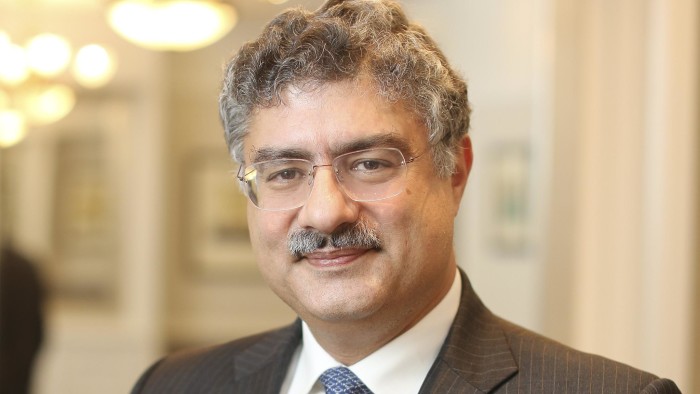Meet the dean: Ashish Nanda, IIMA

Simply sign up to the Business education myFT Digest -- delivered directly to your inbox.
Ask anyone in India to name the world’s top business school and they are just as likely to say the Indian Institute of Management in Ahmedabad as they are to say Harvard, Stanford or Insead.
Outside India, IIMA may be well-known in academic circles — and the IIMA alumni diaspora may extend to almost every big city in the world — but there is little recognition of the school among those aspiring managers who apply to business schools worldwide. So when the Ahmedabad business school went on the hunt to find a new director, internationalisation was at the top of the brief.
Harvard professor Ashish Nanda, who joined the school as director in September 2013, has a very clear view on the topic. “One of the big developments in recent years has been the realisation that if we [IIMA] want to continue to give high quality education to the best students, we have to understand what is happening internationally, we have to understand global trends,” says Prof Nanda. “To be a top quality institution we have to have a global perspective.”
For IIMA, Prof Nanda represents the best of both worlds. He has been a professor at both Harvard Business School and Harvard Law School, so clearly knows a thing or two about how big brand schools operate. But he also understands the Indian context for business education. He was born and educated there and was even a former student at IIMA. He graduated from the school’s flagship PGP programme in 1983, before moving to the US and studying at Harvard, from where he was awarded a PhD in business economics a decade later.
Prof Nanda is keen to play up the similarities between IIMA and Harvard and also the relationship — IIMA had links with HBS from the Indian school’s inception in 1961, to develop the case method in India.
As with HBS, IIMA has a focus on high-quality teaching, says the director. “The seriousness with which we take the classroom is similar to HBS. We treasure the sense of community.”
As an alumnus himself, he is already one of the school’s biggest supporters. “The students are as bright as any other place in the world,” he says, with fewer than 0.3 per cent of those who apply to the school accepted. “It is one of the most selective institutions in the world,” he says, adding that if they chose, many of the students could get scholarships to top US business schools.
However, he acknowledges that although the school has always been ruthlessly meritocratic in admitting only the brightest students with the highest test scores, this might have resulted in an homogenous student body. He plans a more nuanced approach to admissions, which could help bring diversification.
“We have been recruiting rocket scientists. Some rocket scientists can be great leaders and some people who aren’t rocket scientists can be great leaders,” he says. “[Now] we are trying to evaluate people as future leaders.”
Attracting the top international professors is also part of his remit and Prof Nanda is optimistic that a strong research environment will help offset the disparity in salaries between India and the US in particular, especially for those starting out on an academic career.
“A lot of people who enter academia don’t do so to maximise compensation,” he argues. “Early in their careers faculty are looking for an environment to do very high quality work that will help them flourish in their research.
“The challenge is not that we can’t attract these people but that we haven’t gone out and made these packages visible.”
For more senior scholars, the school is creating a raft of chaired professorships — the school created around 10 chairs in 2014. Although he admits that the government-determined salaries that IIMA can pay are too low, he puts up a spirited defence of the salary package that the school can offer.
“Our compensation is way less than most international institutions if you use exchange rates. If you use PPP, then our compensation looks much more attractive,” he says. Outside consulting work and paid executive education will help boost the bottom line, he continues.
Developing IIMAs executive education portfolio will be almost second nature to Prof Nanda. When he moved from HBS to the Law School, where he taught for eight years, part of his brief was to develop executive education teaching and business-style cases.
Building on his links with the US will be important at all levels. Today IIMA has strong relationships with around 160 academic institutions worldwide, mainly for student and faculty exchanges. Historically, these exchanges have been with European institutions — the school has strong links with the French school Essec, for example — but now the dean is pushing for stronger links with the US. Dual degrees are also planned.
Above all, Prof Nanda believes that the timing is right for his move back to IIMA. ”There is a realisation that India is at a critical point. There is a young demographic and economic growth,” he says. “If we don’t get something terribly wrong, India is very well positioned now to have its people lead more fulfilling lives.”
Comments